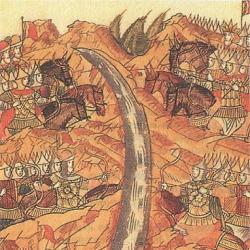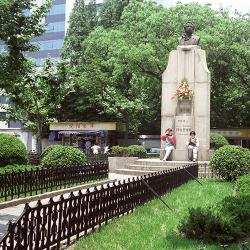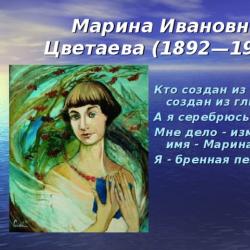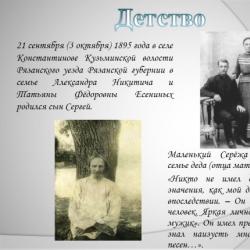Gitis, faculties: acting, directing, producing, theater studies. admission to GITIS. Gitis how to apply and which faculty to choose Admission to Gitis for acting
A theater university is an opportunity to get a full-fledged theater profession. An applicant can either enter GITIS or easily fail to pass the entrance exam. Often, even very talented people cannot overcome the test in the form of a competition of 100+ people per place. It's all about limiting the number of budget places. In each of the faculties, such places, according to the admission control figures, have a different number or are absent altogether.
Gitis how to apply on a budget
GITIS offers full-time and part-time courses. Full-time students in 2017 can choose one of the faculties shown in the image below:
In addition to the name of the faculty, you can see the specialty in which the training takes place, the number of places and quotas for people with special rights. You need to prepare for admission to GITIS long before the exam. It all starts with desires. - a good wish that can come true if you prepare well for the upcoming test.
The recommended preparation period for the entrance exam to GITIS is 1 year, and preferably 2 years. You shouldn’t count on luck and think that everything will happen by itself, much less try to enter a theater university without having any preparation.
It is important to know that the process of admission to GITIS is an action that forms a live queue for auditions. Often you have to stand in this line for up to 7 hours, and after that the tired and exhausted actor must also perform with dignity. But such loads are “dust” compared to what real actors experience on set. If you can’t even handle the entrance exam, what else can you talk about?
I want to become an actor, what should I do?
Please note that we are not specifically saying: do this, do that, we are just trying to explain what you will have to face. After all, admission to GITIS is not only exams, but also everything that happens around them. Just think, what would you like to see if you were the director? For whom and for what?
By meeting the objectives and requirements and having a clear understanding of what is required of the student, you can determine the outcome of the exam in your favor. This can help even if you are less creative than other applicants. If you approach organizational issues wisely and follow the technology that people use, you can be ahead of others.
Life loves smart people, so as a trick, you can find senior students and chat with them, find out how they passed the entrance exam. Moreover, the more people around you who have already passed this test, the higher the likelihood that you will pass. This is a life strategy that actually works - for example, if you want to be rich, spend time among the rich.
Transferring this rule to the plane of acting, you can try to look for friendly connections with current actors and discuss your goals, plans with them, consult and at the same time learn from their experience. It is precisely because there was an experienced teacher next to the person that it will be much easier for those who have been trained in acting courses when entering GITIS.
Conclusion
Admission to a theater university of such a scale as GITIS is not an easy task. With a lot of competition, only the best have a chance to get in. We tried to explain to you how to be the best right now. In a nutshell, this is pre-preparation. Only prepared and “armed to the teeth” should come to the exam. It doesn’t happen that a person from the street just picked up and entered, just learned a couple of poems along the way, prose, learned to sing by accident, and then by mistake went to a university and entered. This is from the category of fantasy. Only professionals in their field can count on admission to GITIS.
Many applicants who want to enter an art institute ask themselves questions: how to become a producer, a professional director, or a qualified actor. These are the specialties that can be obtained after studying at GITIS. Below is information about and also about admission to GITIS. A total of 8 faculties are open, and which ones, read below.
Faculties of RATI GITIS
The structure of the famous university includes the following faculties:
- acting art;
- director's;
- musical theater;
- theater studies;
- producer;
- stage;
- choreographer;
- scenography.

On the basis of GITIS faculties, several areas of specialist training are offered. For example, on the basis of the choreographic department, applicants can gain knowledge in the field of choreographic art of ballet, operetta, folk dance, and figure skating. Below is information about each faculty separately.
Faculty of Variety
In 1973, the Faculty of Variety Arts appeared at GITIS. Specialists in the field of pop directing and acting are trained there. Both full-time and part-time forms of study are available. The duration of the acting program is four years; to become a director, you need to study for 10 semesters. The department of pop art operates on the basis of the faculty.

Faculty of Scenography
It was founded in 1992 and is the youngest in the institute. The duration of study at the faculty is 5 years. On its basis there is only one department - scenography.

Upon completion of training, students can receive qualifications such as theater production designer, stage costume designer, puppet theater production designer. The direction of technology for artistic design of the performance is also available.
Ballet Department
The faculty in question trains choreographers for ballet theaters, operetta and choreographic groups, folk dance and pop ensembles, as well as figure skating choreographers. The duration of full-time study is 8 academic semesters; those wishing to enroll in part-time study should note that the duration of their study will be slightly longer - 4.5 years.
The choreographer's department provides training in the following programs: academic bachelor's and master's degrees. In addition, you can enroll in graduate school. More detailed information about the training programs offered at the faculty can be found on the university website.
Directing department
The department offers applicants directions in the training of theater and circus directors, dramatic theater and film actors, and set designers. The main emphasis of education is the principles laid down by the great reformer, director K. S. Stanislavsky. Training at the faculty of RATI GITIS is carried out in 18 creative workshops. Among them is the workshop of A. S. Konchalovsky, A. V. Galibin, M. Z. Levitin and many others.

It is worth noting that graduates of this faculty are many well-known professional directors who today produce films that are widely known to audiences.
Acting department
The acting department of GITIS is headed by V. A. Dolgorukov. Training at the department is conducted in several workshops. Among them is the workshop of Professor V. A. Andreev, who is the People's Artist of the USSR, as well as the president of the Moscow Drama Theater named after M. N. Ermolova. Students can also undergo training in the workshop of Mindaugas Karbauskis, who holds the position of artistic director of the Moscow Academic Theater named after V. Mayakovsky.

Students are taught both full-time and part-time. Moreover, if on a full-time basis you need to take a course lasting 4 years, then on a part-time basis it is six months longer - 4.5. It is also important to note that actors from professional drama theaters with more than 2 years of experience on stage are accepted for the correspondence course.
The acting department operates on the basis of the GITIS faculty. It is headed by V. A. Andreev.
Faculty of Theater Studies
This department of the Institute of Arts produces qualified specialists who can continue to work as journalists in the field of performing arts, become critics, etc. The duration of study for bachelor's programs is 4 years. On the basis of the GITIS faculty there are two departments, namely:
- history of Russian theater;
- history of foreign theater.

Dean of the Faculty - O. V. Zaichikova. Graduates of the department carry out professional activities as managers of Moscow theaters, leading employees of newspapers and magazines, and television editors. Information about famous alumni can be found on the university website.
Producing Faculty
How to become a producer? This is the question most often heard from applicants at the faculty admissions committee. The Department of Production and Management of Performing Arts operates on its basis. Currently, the department is headed by candidate of art history, professor D. Ya. Smelyansky. The faculty offers several areas of specialist training. The duration of training is 4 years. Moreover, it is conducted both full-time and part-time.
Entrance tests for training programs
To enter GITIS, an applicant must successfully pass the entrance examination. Each direction has its own list of exams. To enter the “Acting Arts” direction to obtain the qualification “Dramatic Theater and Film Artist,” an applicant must pass the following tests:
- Russian language (written exam).
- Literature. (written exam).
- Artist's skill (professional practical test).
- Pass an oral interview with the admissions committee.
To enter the specialty “Theater Directing” of the GITIS “Directing” faculty, you must successfully fulfill the requirements for the following tests:
- Directing and artist's skill (practical test of creative direction).
- Interview (conducted orally).
- Directing (professional written test).
- Literature (conducted orally).
- Russian language (conducted in written form).

Applicants can also choose the specialty “Acting”, it is presented at GITIS at the Faculty of Musical Theater. To do this, you need to demonstrate your own skills in solo singing, artistry, pass an oral interview and successfully pass exams in Russian language and literature. The Faculty of Musical Theater also offers the specialty “Theater Directing”, upon completion of which the student is awarded the qualification of a musical theater director.
Passing scores from previous years
In 2017, in the “Theater Studies” field, the passing scores for a budget place were fixed at 267. A total of 11 places are allocated without tuition fees. The cost of obtaining education on a paid basis is about 118 thousand rubles for one year.
The passing score for the “Choreographic Art” major was fixed at 247. These are the numbers for the 2017 admissions campaign. There are 18 budget places allocated. The cost of training on a non-budgetary basis is 273 thousand rubles.
The passing score for the “Art of Concert Performance” direction in 2017 was fixed at 326. There are 15 budget places. The cost of tuition on a paid basis is 141 thousand rubles per year. The duration of training is 5 years; upon completion, students receive a specialist diploma.
The passing score for the “Theatre Directing” major was fixed at 366. This is exactly what or more it was necessary to score to enter on a budgetary basis. Those who scored fewer points could apply for admission under the contract. The cost of training is 141,000 rubles.
More complete information about passing scores from previous years can be found on the university website in the section for applicants. The passing scores of the future admissions committee may not coincide with the results of previous years.
Admission rules
Excerpt from section 1 “General Provisions” of the Regulations on the Admissions Committee of the Russian Academy of Theater Arts - GITIS, approved by the Rector of RATI-GITIS M. Yu. Khmelnitskaya:
1. To organize the recruitment of students, accept documents for those entering higher educational institutions, conduct entrance examinations and enroll students who have passed the competition, an admissions committee of RATI-GITIS is organized. The main task of the admissions committee is to ensure compliance with the rights of citizens to education established by the Constitution of the Russian Federation, the legislation of the Russian Federation, transparency and openness of all admission procedures.
2. The selection committee in its work is guided by:
Law of the Russian Federation "On Education"
- Federal Law “On Higher and Postgraduate Professional Education”;
- Model regulations on an educational institution of higher professional education (higher educational institution) of the Russian Federation, approved by the Government of the Russian Federation;
- Regulations on the admissions committee of the Russian Academy of Theater Arts - GITIS, approved by the Rector;
- The procedure for admission to state educational institutions of higher professional education (higher educational institutions) of the Russian Federation, approved by order of the Ministry of Education of the Russian Federation dated January 14, 2003 50;
- Other documents of the federal (central) or departmental body governing higher professional education;
- Charter of RATI-GITIS;
- Rules for admission to RATI-GITIS;
- Other documents approved by the Academic Council of RATI-GITIS.
Successful completion of creative tests, which are complex in nature, and passing entrance exams in the specialty are the determining condition for admission to the Russian Academy of Theater Arts - GITIS in the specialty (direction) of art.
When admitting students to the 1st year in the 2007-2008 academic year, some faculties of RATI-GITIS take into account the results of the Unified State Exam.
Selection consultations and preparatory lectures are held for applicants.
Applicants with honors or high school medals take exams only in their specialty. If you receive excellent grades in your specialty, you are exempt from further exams.
Applicants who have passed all exams, but did not pass the competition, may be offered training on the condition that students are reimbursed for educational expenses. The cost of training is set by the faculties and approved by the Academic Council of the RATI.
More detailed information on the procedure for conducting entrance exams, selection consultations, preparatory lectures, etc. can be obtained from the faculties of the Academy.
1. Selective consultations and preparatory lectures for all specialties are held at faculties during April - June.
4. Required documents:
Application addressed to the rector of the academy (in the form);
- document on secondary (complete) general, secondary specialized or higher education (original or copy);
- document proving identity and citizenship;
- photographs (3x4) - 4 pcs.
The following are available for enrollment:
Original document on education;
- medical certificate for those entering the university;
- in addition to the medical certificate:
- conclusion of a phoniatrist (for musical theater actors);
- in the therapist’s report, indicate previous chronic diseases;
- military ID or registration certificate;
- document on permanent registration (registration) or temporary registration.
5. In case of disagreement with the results of the entrance exams, the applicant has the right to file an appeal to the appeal commission within 2 hours after the announcement of the exam results.
List of entrance exams by faculties and specialties
Acting departmentDirecting departmentFaculty of Theater StudiesProducing FacultyFaculty of Musical TheaterFaculty of Variety ArtsBallet Department
|
Choreography teacher (full-time and part-time departments) |
List of literature for applicantsRussian Academy of Theater Arts - GITISList of literature for applicants1. Belinsky V. “Hamlet,” Shakespeare’s drama. 2. Mochalov as Hamlet. In: Belinsky about drama and theater. M.-L., 1948, p.241-251. 3. Gogol and theater. M.-L., 1952. 4. Gorchakov N. Directing lessons by K. S. Stanislavsky. M., 1952. 5. Directing lessons Evg. B. Vakhtangov. M. 1957. 6. Goncharov A. Director's notebooks. M., 1980. 7. Golubovsky B. Place of work - theater. M., 1975. 8. Zavadsky Yu. The birth of the performance. M., 1975. 9. Zakharov M. Contacts at different levels. M., 1986. 10. Knebel M. Poetry of pedagogy. M., 19&4. 11. Meyerhold Vs. Articles, letters, speeches, conversations. M., 1986, vol. 1, 2. 12. Nemirovich-Danchenko Vl. Theater heritage. M., 1952. 13. Petrov Ya. I will be a director. M., 1969. 14. Popov L. On the artistic integrity of the performance. M., 1959.* 15. Pushkin and theater. Dramatic works, articles, notes, letters. M., 1953. 16. Rudnitsky K. Vs. Meyerhold. M., 1981. 17. Russian Drama Theater. M., 1976. 18. Stanislavsky K. My life in art. (Any edition).* 19. Ethics. M., 1961.* 20. Tairov A. About the theater. M., 1970 21. Tovstonogov G. Mirror of the stage: in 2 books. L., 1984. 22. Chekhov M. Literary heritage. M., 1995, vol. 1,2. 23. Efros A. Profession - director. (Any publication). |
Instructions
Target the specific university you want to enroll in, because each of them conducts different creative tests, which you need to prepare for in advance. Among the educational institutions that educate future Mikhalkovs: Shchukinsky, Shchepkinsky theater schools, VGIK, GITIS, MITRO, GITR, MGUKI.
Interview. Familiarize yourself with the theory of the profession. After all, if you are going to devote yourself to some business, you need to know everything about it. Learn directors, playwrights, composers, artists, basic terms and history. The interview will test your knowledge of the profession and your overall intellectual level.
Paperwork. What it will be is not known exactly. Some institutions require an essay on a topic specific to them, others an autobiography in an artistic style, and others require photographs. Such tests allow us to identify professional skills and the director's type of thinking.
And finally, the practical part. Before the commission, you will be asked to stage a director's sketch with the participation of applicants like you.
note
A possible risk is your embarrassment. Never hesitate!
Helpful advice
Take each test with full responsibility. At each round, a large number of participants are eliminated. Dozens of people are vying for one place. To get in, you have to give it your all. But if it doesn’t work out, don’t be discouraged! Most applicants apply for years until they achieve their goal. After all, many famous people also did not get into the directing department the first time.
VGIK is the State University of Cinematography. The university has such faculties as acting, cinematography, art, production, screenwriting and film studies and directing. But getting there is not as easy as it seems at first glance.
Instructions
The acting department trains students in the specialty "Acting Art" and the specialization "Artist of Dramatic Theater and Cinema." The duration of study will be 4 years of full-time study. Entering VGIK and making your dream of becoming an actor come true is not so easy, especially since many famous artists failed to enroll the first time. In order to enter this faculty, you need to work on yourself with full force. Constant work on yourself is the basis of acting.
To enter the faculty, you need to go through two rounds. The first is a traditional exam, writing an essay or dictation. The second is a creative exam, where you will need to reveal yourself in all the glory of your talent. Both exams are important for admission, but the final point in choosing will be the creative exam, where each applicant must show his abilities. The creative exam involves preparing a monologue, fable, musical number, singing and dancing. In addition, each applicant will be interviewed about their knowledge of the art of theater, cinema, literature and music. Here it is important to know all the famous film directors, theater and film actors, writers and composers.
Just the desire to enroll is not enough, but you must understand that there are many like you and everyone wants to enroll. There is usually a lot of competition for a budget place, so your goal is to prove yourself and declare that you are worthy of studying at VGIK. Rehearsals are the key to the success of any performance. The more rehearsals, the more confident you are in your abilities. It is better to start the rehearsal process long before admission; if possible, this should be started a year in advance.






